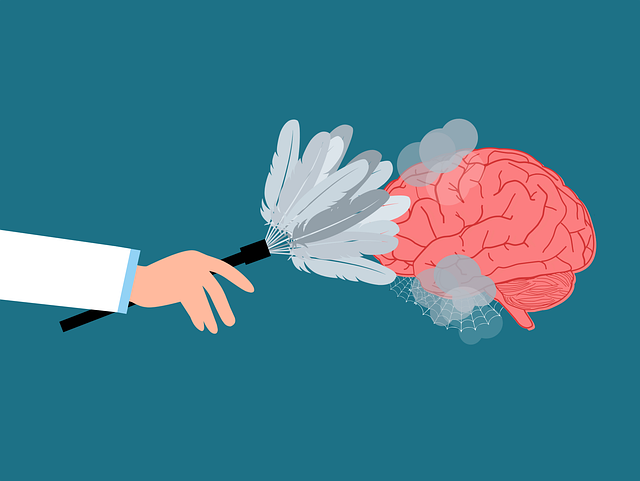Stress management workshops tailored for young adults with conduct disorders (CD) combine empathy-building strategies and evidence-based techniques, creating supportive environments. These workshops, offered through accessible resources like Mental Wellness Podcast Series, empower participants to develop coping skills like mindfulness, stress reduction exercises, and open dialogue. By addressing unique demographic needs and aligning with best practices, structured sessions facilitate improved mental wellness and quality of life for this vulnerable population, specifically tailored to their challenges in therapy.
Stress management workshops are a powerful tool for empowering young adults with conduct disorder (YACD) to navigate their mental health challenges. This article explores the critical role of stress in YACD and offers practical insights into designing and implementing effective therapy workshops tailored to this unique population. We provide step-by-step guidance, emphasizing evidence-based strategies to help professionals facilitate successful sessions, ultimately enhancing well-being and promoting positive behavior change for young individuals facing conduct issues.
- Understanding Stress and Its Impact on Young Adults with Conduct Disorder
- Designing Effective Workshops for Stress Management in This Population
- Implementing and Facilitating Stress Therapy Workshops: Practical Steps
Understanding Stress and Its Impact on Young Adults with Conduct Disorder

Stress is a prevalent issue among young adults, especially those with conduct disorders. Conduct disorder (CD) is characterized by persistent and repetitive violations of societal rules and rights of others, often leading to significant impairment in daily functioning. The impact of stress on individuals with CD can be profound, exacerbating existing behavioral issues and hindering progress in therapy. Unmanaged stress may manifest as aggression, impulsivity, and even self-harm.
Understanding the nature of stress and its effects is crucial for developing effective interventions. Empathy building strategies, integrated into therapy for young adults with conduct disorder, can foster a supportive environment, promoting better coping mechanisms. The Mental Wellness Podcast Series Production can play a vital role in raising mental health awareness, offering accessible resources and platforms to share stories and strategies. By combining these approaches, workshops can empower participants to manage stress, enhance their mental wellness, and ultimately improve their overall quality of life.
Designing Effective Workshops for Stress Management in This Population

Designing effective workshops for stress management among young adults with conduct disorders requires a tailored approach that combines understanding their unique challenges and leveraging evidence-based techniques. These workshops should focus on creating a safe, supportive environment where participants can openly discuss their experiences and learn coping strategies. Incorporating elements of mental wellness coaching programs and stigma reduction efforts can significantly enhance the effectiveness of these sessions. By fostering open communication and providing practical tools for managing stress, these workshops aim to empower young adults with conduct disorders to take control of their mental health.
The development of these workshops should prioritize active engagement through interactive activities, group discussions, and role-playing scenarios. Mental illness stigma reduction efforts can be integrated by promoting empathy and understanding among participants, encouraging them to challenge negative perceptions. Additionally, focusing on coping skills development, such as mindfulness techniques and stress-reduction exercises, equips young adults with effective tools to navigate their daily lives. This holistic approach not only addresses immediate stress but also fosters long-term mental wellness.
Implementing and Facilitating Stress Therapy Workshops: Practical Steps

Implementing and facilitating stress therapy workshops requires a structured approach to ensure their effectiveness, especially when targeting young adults with conduct disorders. The first step involves identifying the specific needs and challenges of this demographic. This can be achieved through Mental Health Policy Analysis and Advocacy, ensuring the workshops align with current best practices and evidence-based treatments for conduct disorders and related issues, such as Anxiety Relief. Customizing the therapy sessions to address these unique concerns is vital for engaging participants and promoting meaningful outcomes.
Practical steps include recruiting qualified facilitators experienced in trauma support services, creating a safe and supportive workshop environment, and employing interactive activities and techniques tailored to young adults’ preferences. Regular evaluation and feedback from participants are essential to gauge the workshops’ impact and make necessary adjustments. By following these practical steps, organizations can successfully conduct stress management workshops that cater to the specific needs of young adults dealing with conduct disorders.
Stress management workshops tailored for young adults with conduct disorder can be transformative tools, offering effective therapy for this vulnerable population. By incorporating evidence-based strategies and adapting them to suit their unique needs, these workshops empower individuals to navigate and reduce stress levels. Through practical steps outlined in this article, organizations can facilitate engaging sessions that foster resilience and improve overall well-being, ultimately contributing to positive outcomes for young adults struggling with conduct disorder.














